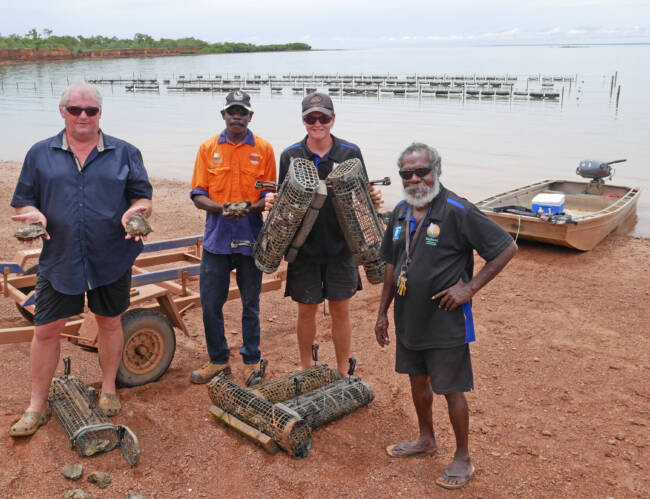New registration in process for anglers in Aboriginal-owned waters
Date: Mar 12, 2021
Publication Type: Blog
At the start of March, the NLC introduced a free online registration process for recreational anglers wanting to fish in the Top End’s intertidal zones.
The Top End’s intertidal zones have been the subject of years of negotiation since exclusive Aboriginal ownership was recognised in the 2008 Blue Mud Bay High Court decision.
Registering via the NLC’s website is simple and once registered, fishers can access specific areas until 31 December 2022.
“As I promised last year, NLC has been out consulting widely with traditional owners of sea country about what they want to do with their land and sea country,” NLC CEO Marion Scrymgour said.
“Aboriginal land and sea country is privately owned. Like any land owners, they have the right to say who can and who cannot come onto their country. There are some areas where, for cultural, environmental or commercial reasons, traditional owners want to restrict access.
“The NLC has statutory responsibilities to assist traditional owners to manage their country and we take those responsibilities very seriously.
“The NLC has been talking to and sharing information with all the other stakeholders – the NT government, Amateur Fisherman’s Association NT, the Seafood Council and the Guided Fishing Tour operators but at all times we have to put the interests of traditional owners first. And that’s what we do.”
Ms Scrymgour said the registration system would increase anglers' safety in intertidal zones — a key concern of traditional owners.
"We do so see accidents happening in some of those areas. Often we don't hear about it but it does happen," Ms Scrymgour said.
Yag Bani CEO Steve Westley, Oyster Technicians Elroy Nayilibidj and Brando Westley and NLC Regional counsellor and Yag Bani Chair Bunug Galaminda
"What we've done here is to meet the wishes of traditional owners to look at and to make sure that … particularly for our rangers, they know who is coming into those areas, so if anyone gets into difficulty or something happens, we're at least able to respond.”
NLC Chairman Samuel Bush-Blanasi noted the long history of the battle for sea country in the NT.
“That struggle didn’t just start with Blue Mud Bay in the High Court, we had the Croker Island case before that and sea country traditional owners have been fighting for their country for many, many years,” Mr Bush-Blanasi said.
“We came close when the Land Rights Act was first introduced by the Whitlam government in 1975. Back then the Land Rights Act would have given us two miles of sea country out from the shore.
“But when the Land Rights Act was re-introduced to the Australian parliament by the Fraser government the next year those sea country rights were gone. We’ve never stopped fighting for our sea country and we never will.”
In a statement, Aboriginal Affairs Minister Selena Uibo said the developments were "good news" and the NLC would "continue to work with land owners around long-term permanent access arrangements".
"The NLC has acted strongly on behalf of land owners who were granted ownership over much of the Territory's coastline in 2008 by the High Court and we thank the NLC for ongoing work ensuring Territory anglers have so much access to Aboriginal-owned waters," she said.
"While the NT government will continue to pursue long-term permanent fishing access to the areas that fishers use, the decisions on access ultimately rest with the land owners."


